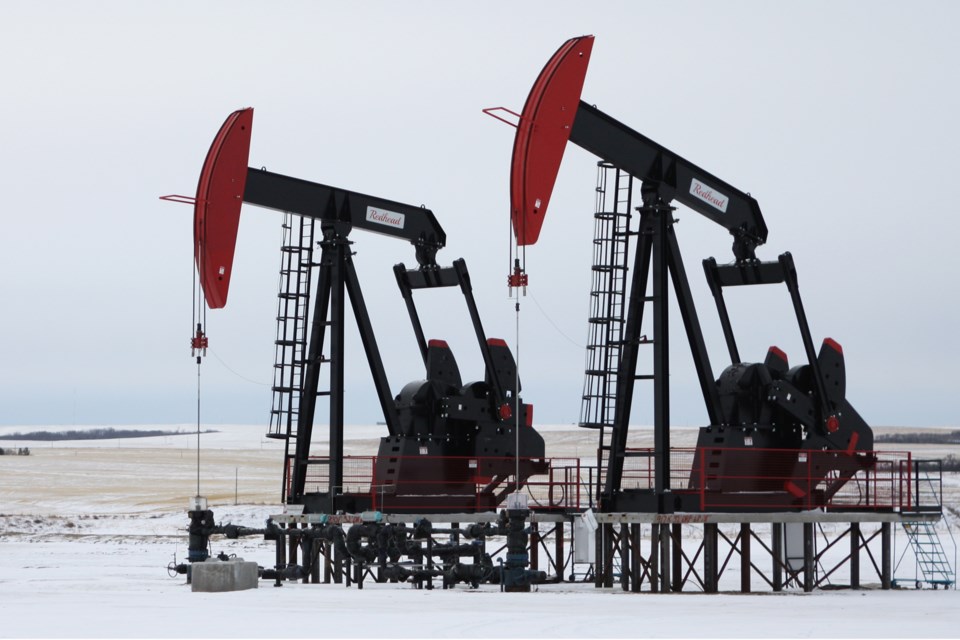Seven municipalities reporting the highest unpaid oil and gas property taxes:
- Regional Municipality of Wood Buffalo: $4.8 owed in 2019
- Kneehill County: $6.3 owed in 2019
- Big Lakes County: $6.1 million owed in 2019
- Woodlands County: $3.8 million owed in 2019
- Starland County: $3.8 million owed in 2019
- Clearwater County: $4.8 million owed in 2019
- Yellowhead County: $3.5 million owed in 2019
This is Part 2 of a three-part series on how rural municipalities are being impacted by oil and gas companies reneging on their property taxes.
KNEEHILL COUNTY — While Alberta Premier Jason Kenney warned “you can't wring money from a stone” in the face of collapsing oil and gas companies abandoning tens of millions of dollars in unpaid property taxes, rural communities are struggling to cope with the lost revenue.
“There’s going to be more and more rocks out here,” said Jerry Wittstock, reeve of Kneehill County, of Kenney's remark.
The Rural Municipalities of Alberta estimates oil and gas companies owe $173 million in unpaid property taxes to rural municipalities across Alberta. RMA president Al Kemmere warned if action isn't taken, “many rural municipalities will struggle to remain viable.”
PART ONE: Starland County struggles to survive as oil and gas companies go under
According to the RMA, Kneehill county has been one of the hardest hit, with Wittstock saying his county is owed $6.3 million in unpaid property taxes from 17 oil and gas companies in 2019 alone.
“In the municipal world, budgets don’t balance themselves. I guess we don’t have enough rainbows and unicorns out here in the rurals,” Wittstock said.
The RMA blamed part of the problem on low natural gas prices pushing oil and gas companies into insolvency. After the Alberta Energy Regulator and the Orphan Wells association collect against a bankrupt company's assets to cover the reclamation costs of sites they leave behind, there is often nothing left over for any other creditors.
Other companies, according to the RMA, are choosing not to pay or are asking for deep discounts as desperate counties settle for collecting something rather than nothing at all.
“There’s no consequences for not paying,” Wittstock said.
Facing years worth of multi-million dollar shortfalls, his county has had to get creative in order to maintain the infrastructure they have, such as pulling up the shoulders along county roads so the material can be used to repave other roads.
“You can’t make a silk purse out of a sow’s ear, but we're doing our best,” Wittstock said.
Wittstock warned his county is running out of options as infrastructure deficits continue to climb. He said his county has 214 bridge structures, most of which are decades overdue for replacement, and no plan as to how they will afford to fix them.
At the same time, Wittstock said rural budgets are facing downward pressure from the provincial government, including a new requirement for rural communities to pay for increased rural RCMP policing costs under the Provincial Police Services Agreement.
In April, rural communities will be expected to chip in for 10 per cent of the total cost of the PPSA's front-line policing costs, climbing to 30 per cent by 2023.
“We’ve had to cut our budgets to the bone, and now they’re wanting us to do more? We can’t sustain this,” said Richard Simard, reeve of Big Lakes County, which wrote off $6.1 million in unpaid property taxes by nine oil and gas producers in 2019 – 17 per cent of the county's annual revenue.
In an effort to balance their budget without crippling residents with even steeper rate hikes and tax increases, Simard said road projects and “shovel ready” plans for new water lines have been cancelled so they can save programs like Family and Community Support Services.
If something doesn't change, Simard said his county's reserves could be totally depleted within five years.
“We’ve never had any say in this at all,” Simard said.
Jim Eglinski, mayor of Yellowhead County, said in 2019 his county was owed $3.5 million in property taxes from oil and gas companies, 10 per cent of their total tax revenue. Eglinski said 13 of the companies that owe his county have gone into receivership, but 27 other companies – owing a combined $2.9 million in 2019 – “just did not pay us.”
As his county struggles to afford to fund childhood development programs, Eglinski said large-scale infrastructure projects like road repaving are now off the table, and more cuts are coming.
“It hurts,” Eglinski said. “A lot of hard decisions have to be made.”
As politicians search for answers and the debt owed to rural municipalities continues to grow, Simard worries the struggles faced by those on the front lines of a rural financial crisis are being overlooked: “What about us?”
– This series is funded by the Local Journalism Initiative.



